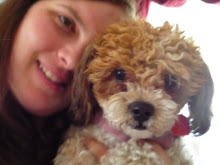Multiliteracy (or Multiliteracies as some say) is an interesting new word that was created to keep up with the changing world. Used by educational theorists, this new term makes us look at how we define what it means to be literate in our continuously evolving multimedia resource environment.
Originally, the term literacy means being able to read and write, usually with books and on paper. These days, almost everyone in developed countries and a few to some in developing countries are reading and writing through a variety of mediums. Depending on where you live, the expectations of what you need to be able to use in your daily life are different.
In the book Calling on CALL: From Theory and Research to New Directions in Foreign Language Teaching, edited by Lara Ducate and Nike Arnold, Gonglewski and Dubravac talk about how Kern (2000) says multiple literacies are "dynamic, culturally and histroically situated practices of using and interpreting diverse written and spoken texts to fulfill particular social purposes: (p.6) Contrasted with the traditional, skills-based view, this definition of literacy is now more closely connected to language in use and thereby to thinking, interacting and interpreting to fulfill a social purpose." (Ducate, Arnold, 2006)
Multiliteracy encompasses all the different forms that reading and writing have taken on, and focus our attention on the fact that to be an educated, employed, literate person in Canada, for example, means that one can: use/make/ surf/ research web pages, use Word/ Excel/ PowerPoint/ hypertexts/ hyperlinks etc, know how to and or understand the terms text/ blog/ twitter/ facebook/ wiki, as well as understanding the more traditional reading and writing sources such as billboards, bus benches, TV, brochures, books, newspapers, and magazines to name a few. It also says that education thus can and needs to be more authentic, supportive of diverse learning styles, encouraging cross cultural communication, critical thinking and process over product. (Gonglewski, Dubrava, 2006)
Do we need a new term for literacy, or should we just update the definition? Dictionaries change all the time, because language does too. Is "double double" in all dictionaries around the world? Not yet, but it could be one day. Change takes time. Maybe one day "mulitliteracy" will become just "literacy". This partially depends on whether the world's resources come to be used equally by all, thus making it true for all that to be literate means to handle and use a variety of multimedia means for communication in our everyday lives.
Ducate, Laura and Nike Arnold Eds. Calling on CALL: From Theory and Research to New Directions in Foreign Language Teaching (2006) CALICO, San Marcos, Texas.
Monday, February 22, 2010
Subscribe to:
Post Comments (Atom)





Kim, You raise an interesting point about why we need a new term instead of expanding the definition of the old one. I think one of the issues is that the term literacy has so many different interpretations as it is. All these new terms "Multiliteracies", "the new literacies", "21st Century literacy skills" are all attempts to clearly identify these skills as separate from the past debates about literacy in general. As you say, maybe in time the distinction will become less necessary.
ReplyDeleteYeah, I agree with Amy. The point now is not new term for multiliteracies, but the way how to develop learners' multiliteracies in the new century. It appears to me that how to integrate CALL into traditional literacy class and how to foster students' multiliteracy skills have beomce a urgent issue.
ReplyDelete